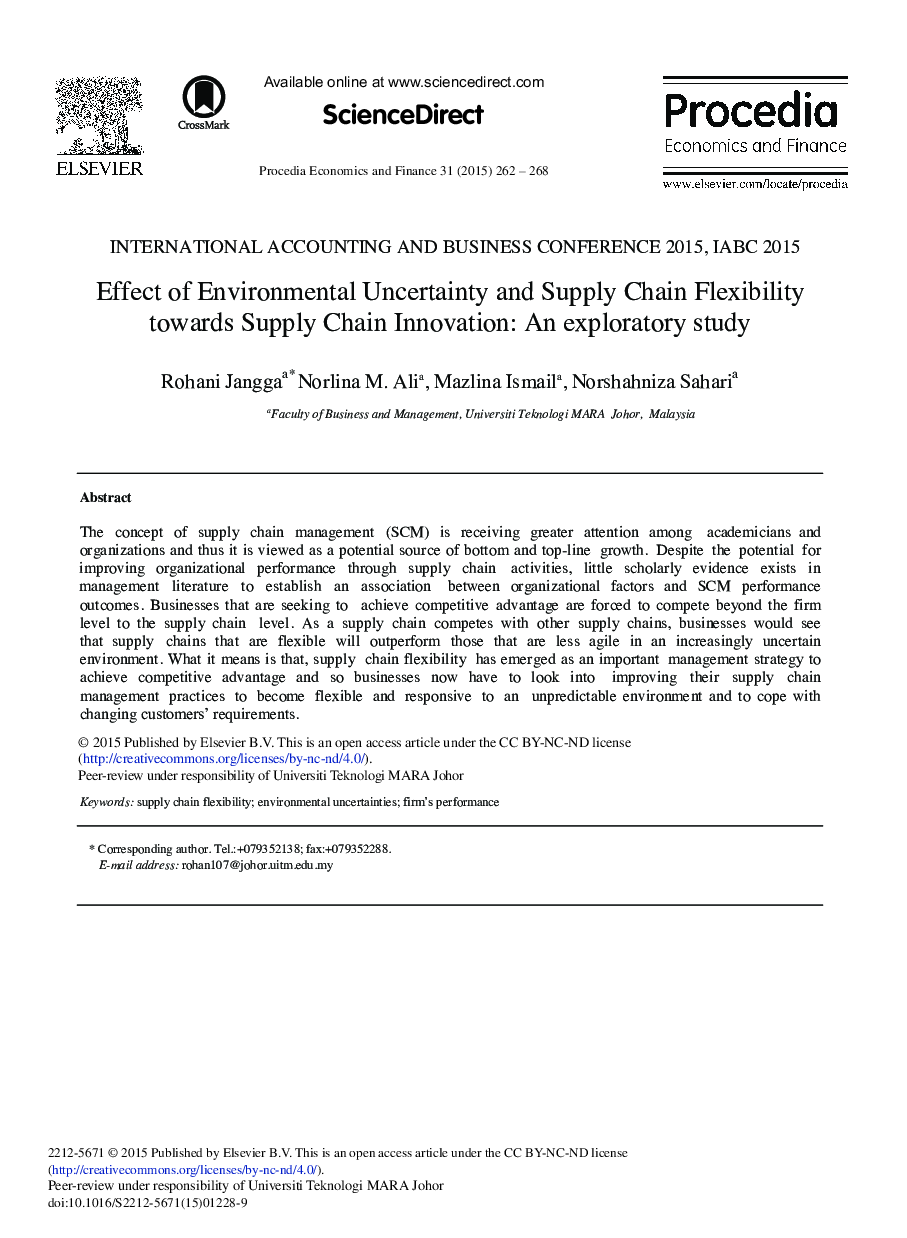| Article ID | Journal | Published Year | Pages | File Type |
|---|---|---|---|---|
| 982645 | Procedia Economics and Finance | 2015 | 7 Pages |
The concept of supply chain management (SCM) is receiving greater attention among academicians and organizations and thus it is viewed as a potential source of bottom and top-line growth. Despite the potential for improving organizational performance through supply chain activities, little scholarly evidence exists in management literature to establish an association between organizational factors and SCM performance outcomes. Businesses that are seeking to achieve competitive advantage are forced to compete beyond the firm level to the supply chain level. As a supply chain competes with other supply chains, businesses would see that supply chains that are flexible will outperform those that are less agile in an increasingly uncertain environment. What it means is that, supply chain flexibility has emerged as an important management strategy to achieve competitive advantage and so businesses now have to look into improving their supply chain management practices to become flexible and responsive to an unpredictable environment and to cope with changing customers’ requirements.
